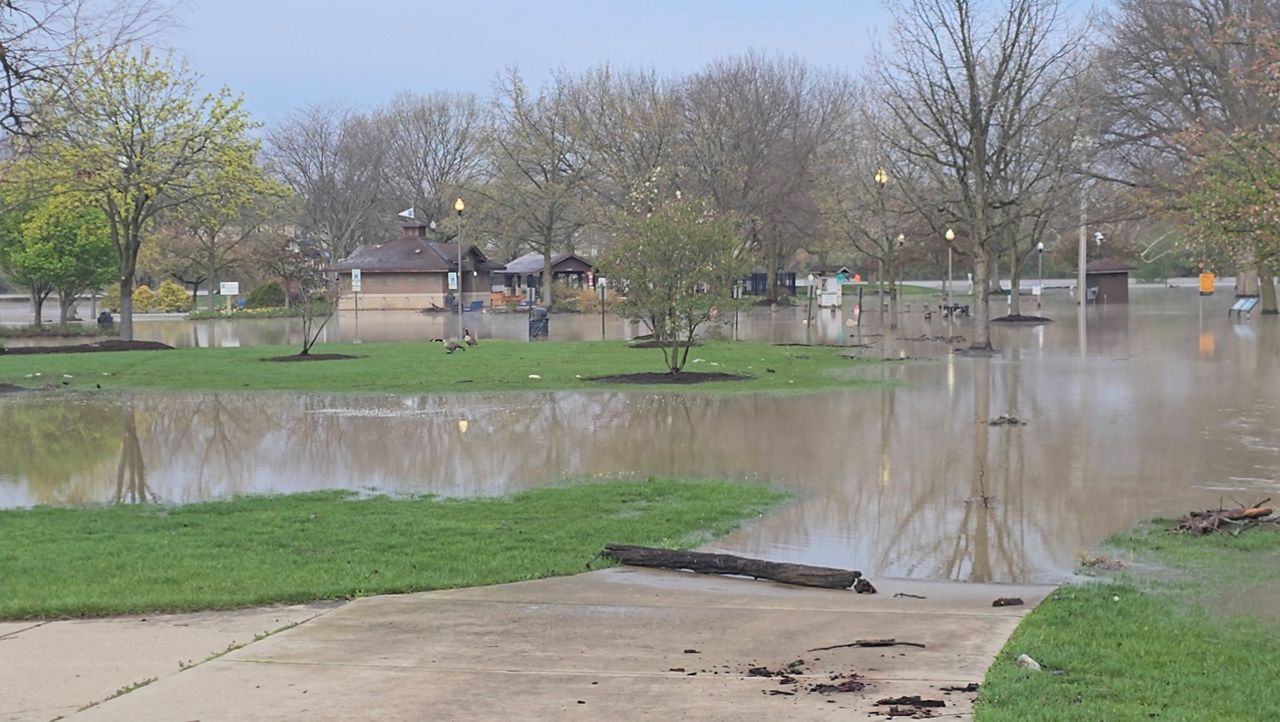OHIO — Advocates for pain patients are mounting a growing campaign here in Ohio and across the country to scale back laws restricting doctors from prescribing opioids after the Centers for Disease Control and Prevention adjusted their recommendations last year.
What You Need To Know
- Pain patients say the CDC's 2016 recommended restrictions on prescription opioids have ruined their lives
- The Doctor-Patient Forum seeks to change laws enacted after the CDC guidelines
- Rhode Island and a handful of other states have scaled back those restrictions
- The CDC adjusted its 2016 guidelines in 2022
Spectrum News 1 talked with two patients from Montgomery County who say the CDC’s original guidelines in 2016 brought their lives to a painful and screeching halt.
Dawn Knorr found relief from the pain of a broken jaw and broken back from opioids.
She also suffers from a rare condition called Eagle Syndrome, which affects her neck and throat and creates intense facial pain.
“So it’s very difficult for me to turn my head from side to side,” Knorr said. “Swallowing’s difficult and I do have to put my head forward.”
With prescription opioids, she was able to function.
“Had no problem whatsoever,” she said. “I took it as prescribed with food, and I actually ran a business for many, many years. I worked 10-15 hours a day and I had 20-plus employees and contractors.”
Factory worker Chris Whitman was also able to juggle a demanding job and family obligations before his hand was smashed in a press at work.
“I’m missing the index finger and then the meta-carpal, which is the bone here that comes all the way back to the wrist,” Whitman said.
At first, he refused opioids because of the stigma around them.
“I said I don’t want pain pills in the beginning, and I went the first year without pain pills — everything, surgeries, everything,” Whitman said.
He ended up developing Complex Regional Pain Syndrome, a condition that produces almost constant pain, day and night. That’s when he agreed to try treatment with opioids.
“I was at least able to do something functional during the day,” he said. “I was no longer a couch potato, and I was able to bear the pain at least a little bit and that’s all I needed cause I’m a fighter inside, just like every pain patient is a fighter. We just want our quality of life back."
It all changed for Whitman and Knorr when lawmakers made it more difficult for doctors to prescribe opioids, as a reaction to the Centers for Disease Control and Prevention's recommendations in 2016.
“The 2016 CDC guidelines destroyed all of that for me. I was instantly cut off,” Whitman said. “My doctors were too scared to help any patients anymore,” he said.
Whitman says since then, it’s gotten even worse.
“We’re in 2023. Now, there’s a stigma even around the world ‘pain.' And now, the instant you say pain, you’re an addict,” he said.
He continues to seek treatments but said nothing has come close to the relief he received when he was able to take the proper dose of opioid pain medication.
“It’s horrible, and I’m only getting worse,” he said. “My quality of life is gone.”
Knorr also was cut off after the 2016 guidelines. She and Whitman were both directed to pain clinics they said were a big waste of time.
“You don’t have any right whatsoever,” Knorr said. “You can’t ask a question, you can’t see what they’re writing about you and you have to take what they give you. You’re given every therapy known to man. You’re a pin cushion basically.”
“They call them pain clinics but they’re God-awful — you’re treated like a criminal,” Whitman said.
Knorr said one of the most traumatic experiences was being told she should try medical marijuana.
“You’re talking about somebody who didn’t even smoke recreationally, and I’m crying like a big baby in the office because what am I going to do,” Knorr said. “This facial pain is unbelievable it’s facial neuralgia — it’s one of the most ridiculously painful conditions you can have.”
She said she reluctantly tried the medical marijuana but that didn’t help either.
“I couldn’t function and then I became paranoid because my family is anti-recreational drug you now and so am I," Knorr said.
Whitman and Knorr said the most frustrating thing is being forced to try alternative treatments when they had something that worked for years.
“Nothing helped but one (opioid) pill every four hours, and I was functional,” Knorr said. “It’s like my life was taken away from me.”
“Doctors and patients have to jump through so many hoops and red tape if the doctor will give it to them and a lot of times insurance will say, ‘No,’” Whitman said.
Both Whitman and Knorr have heard “No” from other medical professionals who aren’t their doctors, refusing to give them the pain medicine prescribed after surgeries.
For Knorr, it was a nurse.
“He refused to give me my pain meds, and I was saying, ‘I just got the relief I needed I have to have my pain meds,’” Knorr said.
For Whitman, it was a pharmacist.
“She said, ‘I know better than your neurosurgeon’ right after my surgery. ‘You do not need this amount of pain medication. I will not fill these for you.’ And it was the weekend, and I can’t get a hold of my doctor,” Whitman said.
There are thousands of others in Ohio and across the country telling similar stories on the Doctor Patient Forum, founded by Claudia Merandi, a pain patient turned advocate.
“Pharmacists are just as afraid as doctors but I think pharmacists need to know that their role is to dispense the medication,” Merandi said. “These are also very educated people, but they’re not doctors and they weren’t trained to be doctors.”
Merandi lobbied to get the laws regulating opioids changed in her state of Rhode Island. Since then, six other states have passed similar laws after the CDC relaxed some of its recommended restrictions on opioids in 2022.
“Nobody’s saying that pain pills weren’t abused — of course, people get hooked on pain pills,” Merandi said. “But I find that the same people who got addicted to pain pills were already addicted to something prior and I find that the grief-stricken families, they’ve taken their sorrow out on the pain community.”
“We know what the real issues are: fentanyl, illegal street drugs,” Whitman said. “We need to destigmatize the word pain to start with and then we need to go and re-educate our health care providers.”
Merandi said members of the Ohio chapter of the Doctor Patient Forum continue to look for a sponsor in the state legislature to propose a bill similar to what passed in Rhode Island to scale back restrictions on doctors and pharmacies in Ohio.










